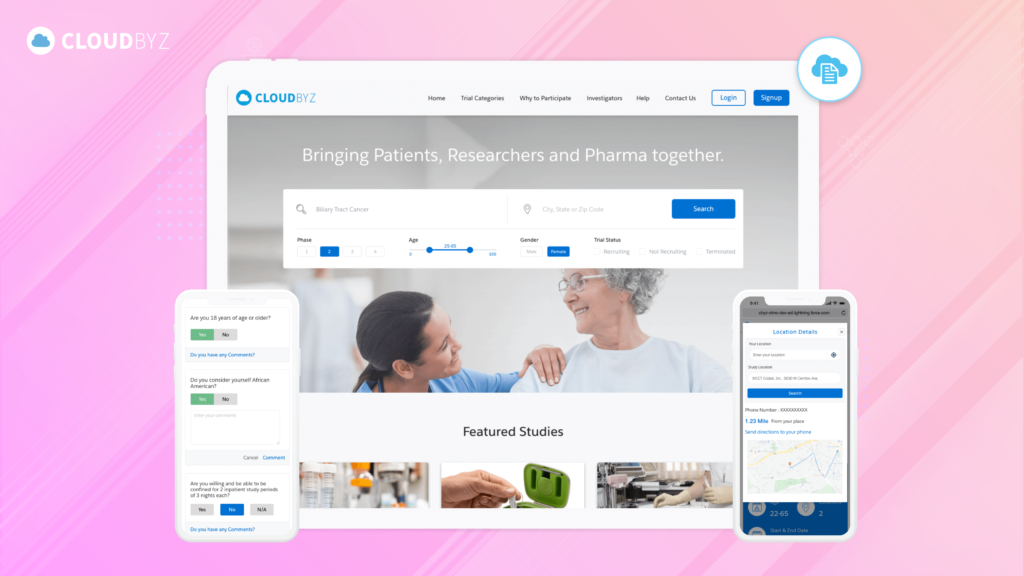
In the realm of clinical trials, regulatory compliance is a cornerstone that ensures the integrity, reliability, and safety of collected data. Electronic Data Capture (EDC) systems have become integral to modern clinical research, offering streamlined data management and enhanced accuracy. However, the adoption of EDC systems brings with it the responsibility of adhering to stringent regulatory requirements. This blog delves into the regulatory landscape for EDC systems, focusing on key regulations such as FDA 21 CFR Part 11 and other global standards.
Understanding Regulatory Compliance for EDC Systems
Regulatory compliance in clinical trials involves adhering to a set of rules and guidelines designed to ensure that data is accurate, secure, and trustworthy. These regulations protect patient safety, ensure data integrity, and facilitate the approval process for new therapies. For EDC systems, compliance is particularly critical because these systems manage vast amounts of sensitive data electronically.
Key Regulations for EDC Systems
- FDA 21 CFR Part 11
Overview: The FDA’s 21 CFR Part 11 regulation applies to electronic records and electronic signatures used in clinical trials. It sets the criteria under which electronic records and signatures are considered trustworthy, reliable, and equivalent to paper records.
Key Requirements:
- Electronic Signatures: EDC systems must support electronic signatures that are unique to each user and provide the same legal standing as handwritten signatures.
- Audit Trails: Systems must generate secure, computer-generated, time-stamped audit trails that record the date and time of user actions, such as data entry, modifications, and deletions.
- Access Controls: Robust security measures must be in place to ensure that only authorized individuals can access the system. This includes user authentication and role-based access controls.
- Validation: EDC systems must be validated to ensure they function correctly and consistently. This involves rigorous testing and documentation to demonstrate that the system meets its intended use.
- Record Retention: Electronic records must be maintained for the required retention period specified by regulatory authorities. The records should be readily retrievable and accessible for audits and inspections.
- System Documentation: Comprehensive documentation of the system’s design, development, and validation processes is required. This includes user manuals, standard operating procedures (SOPs), and validation reports.
- ICH GCP Guidelines
Overview: The International Council for Harmonisation of Technical Requirements for Pharmaceuticals for Human Use (ICH) Good Clinical Practice (GCP) guidelines provide a unified standard for conducting clinical trials. These guidelines ensure that the rights, safety, and well-being of trial participants are protected and that clinical trial data is credible.
Key Requirements:
- Data Integrity: EDC systems must ensure the integrity and accuracy of clinical trial data. This includes measures to prevent data tampering and unauthorized access.
- Source Data Verification: Systems should facilitate source data verification to ensure that data entered into the EDC system accurately reflects the source documents.
- Informed Consent: Systems must support the documentation and management of informed consent processes, ensuring that participants’ consent is obtained and recorded properly.
- Monitoring and Reporting: EDC systems should provide tools for monitoring trial progress and generating required reports for regulatory authorities.
- GDPR (General Data Protection Regulation)
Overview: The GDPR is a comprehensive data protection regulation implemented by the European Union (EU). It applies to all organizations that process personal data of individuals within the EU, including clinical trial data.
Key Requirements:
- Data Privacy: EDC systems must implement robust data privacy measures to protect the personal data of trial participants. This includes encryption, anonymization, and secure data storage.
- Consent Management: Systems must support the management of consent for data processing, ensuring that participants provide explicit consent for their data to be used in the trial.
- Data Subject Rights: EDC systems must facilitate the exercise of data subject rights, such as the right to access, rectify, and erase personal data.
- Data Breach Notification: In the event of a data breach, organizations must notify regulatory authorities and affected individuals within specified timeframes.
- Other Global Standards
Overview: In addition to FDA, ICH GCP, and GDPR, there are other regional and international standards that may apply to EDC systems, depending on the location of the clinical trial. These include regulations from agencies such as the European Medicines Agency (EMA), the Japanese Pharmaceuticals and Medical Devices Agency (PMDA), and Health Canada.
Key Requirements:
- Local Regulatory Compliance: EDC systems must comply with the specific regulatory requirements of the countries where the clinical trial is conducted. This may involve additional documentation, data protection measures, and reporting requirements.
- Harmonization: Efforts to harmonize regulatory requirements across different regions can help streamline compliance for global trials. EDC systems should be designed to accommodate these harmonized standards.
Best Practices for Ensuring Compliance
- System Validation and Documentation
EDC systems must undergo thorough validation to demonstrate that they meet regulatory requirements and function as intended. This involves creating detailed documentation of the system’s design, development, testing, and deployment processes. Validation should be an ongoing process, with periodic reviews and updates to ensure continued compliance. - User Training and SOPs
Ensuring that all users are adequately trained on the EDC system and its compliance requirements is essential. Standard Operating Procedures (SOPs) should be developed and disseminated to guide users in the proper use of the system. Regular training sessions and refresher courses can help maintain compliance awareness. - Regular Audits and Monitoring
Conducting regular internal audits and monitoring of the EDC system can help identify and address compliance issues before they become significant problems. This includes reviewing audit trails, user access logs, and data entry records to ensure adherence to regulatory standards. - Data Security Measures
Implementing robust data security measures is critical for compliance. This includes encryption, access controls, and secure data storage. Regular security assessments and updates can help protect sensitive clinical data from unauthorized access and breaches. - Collaboration with Regulatory Experts
Working closely with regulatory experts and consultants can provide valuable insights into compliance requirements and best practices. These experts can assist in interpreting regulations, conducting validation activities, and preparing for regulatory inspections.
Regulatory compliance is a fundamental aspect of using EDC systems in clinical trials. Adhering to regulations such as FDA 21 CFR Part 11, ICH GCP guidelines, GDPR, and other global standards ensures that clinical trial data is accurate, secure, and trustworthy. By understanding and implementing these requirements, biotech companies can enhance the integrity of their research, protect participant data, and facilitate the approval process for new therapies. As the regulatory landscape continues to evolve, staying informed and proactive in compliance efforts is essential for the successful use of EDC systems in clinical trials.


